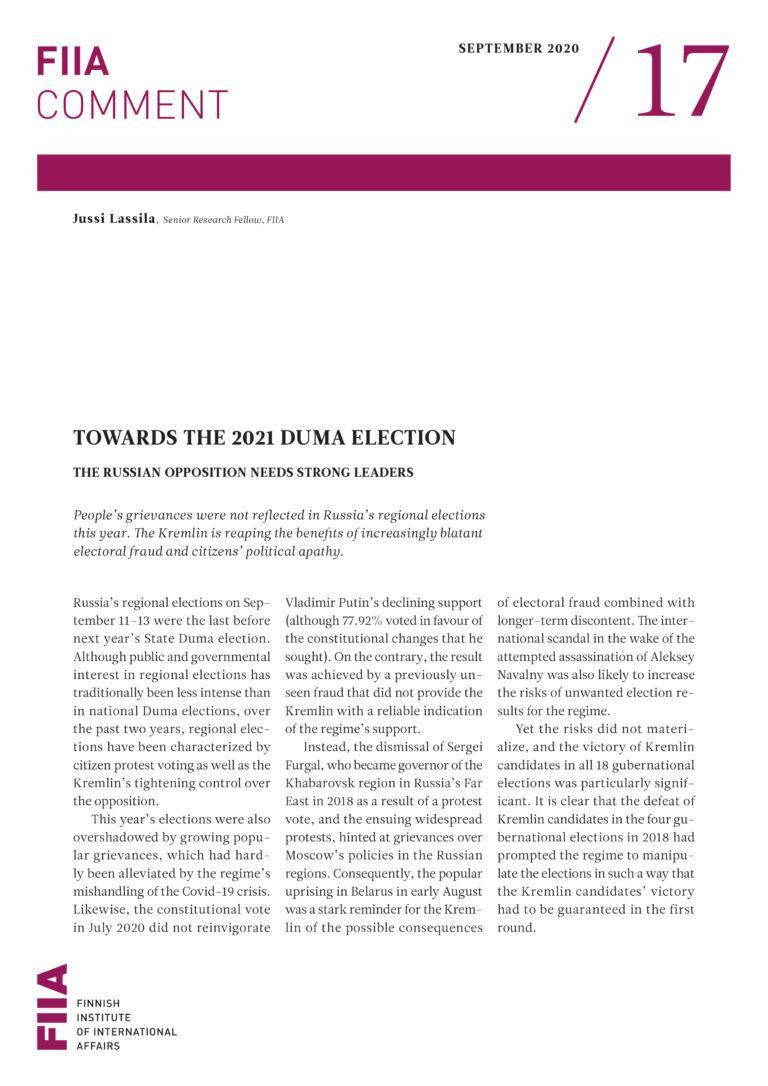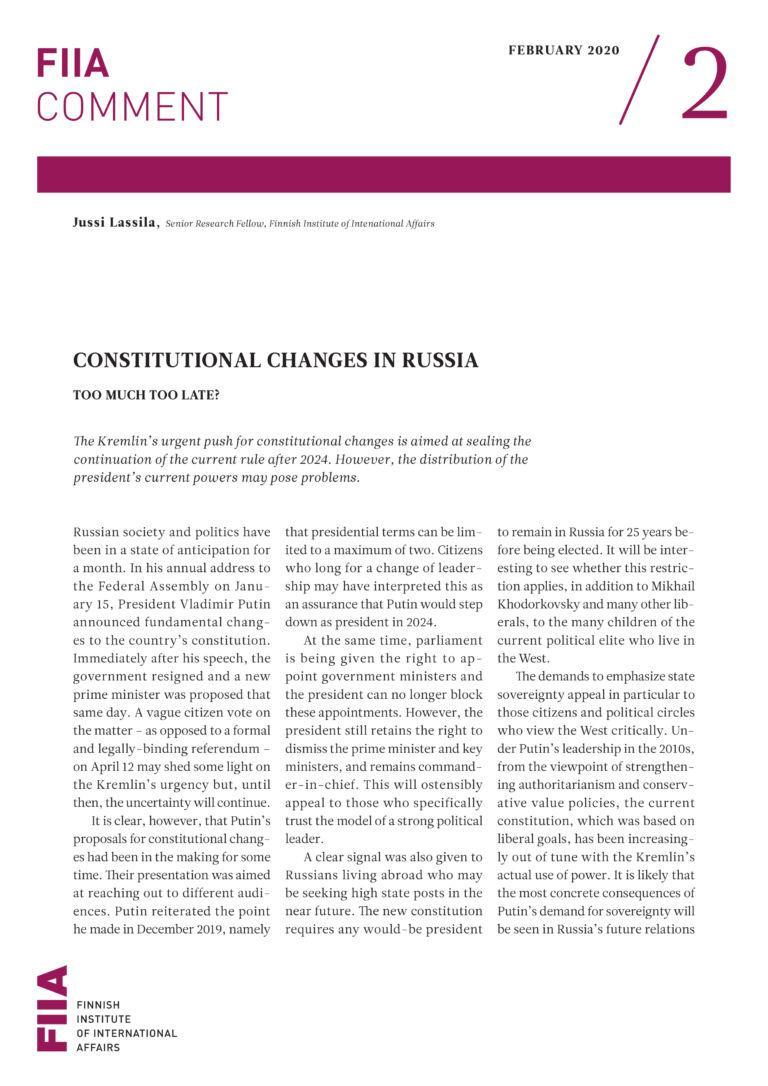Peopleʼs grievances were not reflected in Russia’s regional elections this year. The Kremlin is reaping the benefits of increasingly blatant electoral fraud and citizensʼ political apathy.
Russiaʼs regional elections on September 11–13 were the last before next yearʼs State Duma election. Although public and governmental interest in regional elections has traditionally been less intense than in national Duma elections, over the past two years, regional elections have been characterized by citizen protest voting as well as the Kremlin’s tightening control over the opposition. This year’s elections were also overshadowed by growing popular grievances, which had hardly been alleviated by the regime’s mishandling of the Covid-19 crisis. Likewise, the constitutional vote in July 2020 did not reinvigorate Vladimir Putinʼs declining support (although 77.92% voted in favour of the constitutional changes that he sought). On the contrary, the result was achieved by a previously unseen fraud that did not provide the Kremlin with a reliable indication of the regime’s support.
Instead, the dismissal of Sergei Furgal, who became governor of the Khabarovsk region in Russia’s Far East in 2018 as a result of a protest vote, and the ensuing widespread protests, hinted at grievances over Moscow’s policies in the Russian regions. Consequently, the popular uprising in Belarus in early August was a stark reminder for the Kremlin of the possible consequences of electoral fraud combined with longer-term discontent. The international scandal in the wake of the attempted assassination of Aleksey Navalny was also likely to increase the risks of unwanted election results for the regime.
Yet the risks did not materialize, and the victory of Kremlin candidates in all 18 gubernational elections was particularly significant. It is clear that the defeat of Kremlin candidates in the four gubernational elections in 2018 had prompted the regime to manipulate the elections in such a way that the Kremlin candidates’ victory had to be guaranteed in the first round.
The multi-day voting time introduced in the constitutional vote was now three days. This, combined with increased polling stations, including car boots or park benches, makes independent election observation particularly tedious. At the same time, independent observers are increasingly being driven away from polling stations by intimidation or even violence. The election observation organization Golos registered more than 1,750 reports of election irregularities across Russia by the end of the vote. Pictorial evidence of broken seals on ballot boxes clumsily glued back together substantiated fears about the risks that stretching the voting across several days would pose to fair elections. For the first time, the Central Election Commission also made it difficult to compile statistics on elections by preventing their automatic copying from its website.
Also noteworthy is the passage of parties conceived with the Kremlinʼs blessing. Three parties – the nationalist-leftist For the Truth, the Green Alternative emphasizing ecology, and the entrepreneur-friendly New People – all got their candidate(s) through. A single pass guarantees the party the right to nominate candidates in the 2021 Duma election without signatures. Given the numerous difficulties experienced by the real opposition in getting their parties registered or their signatures approved, the Kremlin’s plan for new parties seems obvious. In the next Duma election, three new Kremlin “spoilers” are likely to be available to gather potential protest votes from those who nostalgize about the Soviet empire, or sympathize with ecological issues or entrepreneursʼ concerns.
The three most significant gains by the opposition were in Tambov, Tomsk and Novosibirsk, where the Kremlinʼs United Russia lost its previous majority. The party had held 25 seats out of 27 in Tomsk City Council, with the number of seats now dropping to eight. In Tambov, the ruling party had held all 18 seats, but was now left with just one.
In Russiaʼs third-largest city, Novosibirsk, United Russia remained the largest party, but lost its previous majority position. In Novosibirsk and Tomsk, local leaders of the Aleksey Navalny network, Sergey Boyko and Kseniya Fadeeva, among others, got through. In Novosibirsk in particular, the success of the Boyko-led Novosibirsk 2020 opposition coalition against the local alliance of United Russia and the Communist Party appears to be a genuine political alternative success rather than a protest vote.
The success of Navalny’s supporters in Novosibirsk and Tomsk is hardly a coincidence. In both cities, the Navalny network has been active for a long time, and it was these cities that Navalny visited before his poisoning. Their victory shows that in order to succeed, the opposition needs an organization that is largely dependent on capable leaders. Their removal for the same reason may well be deemed logical by authoritarian rulers when they perceive their position as being threatened for one reason or another.
Over the last two to three years, Russian civil society has shown signs of a new kind of activation. In the forthcoming Duma election, the challenge for the opposition is not only the increasingly brazen electoral fraud, but also the striking passivity of citizens. Their indifference to falsification will send a clear signal to the regime that this ploy will continue to work. At the same time, elections are increasingly losing their role as a channel for political change. It is still too early to expect the Russian elections to act as a spur to wider change, as in Belarus. Yet the stakes in next year’s Duma election will be higher, as will the potential reactions of citizens to the increasingly blatant electoral manipulation.







